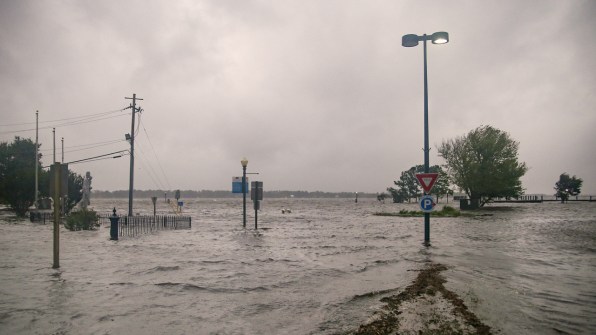-
Content count
5,122 -
Joined
-
Last visited
-
Days Won
170
Posts posted by waterboy 2.0
-
-
-
-
-
-
I will only eat it fresh, not imported drenched in shit.... Lol... And I'm a hardcore carnivore not a vego

Must be fresh, there's no comparison.
Supermarket shit is fit for compost.
The green is out of a bed over 15yrs old. I pulled literally tonnes of floating cobble out of the bed.
Plan for 3 years to establish, don't muck around when preparing a bed that'll serve you maybe 3 decades+. Double dig the bed.. Old-school style. I throw about half inch of compost over it each year and a load of seagrass as a summer mulch.
Got to manage it hard over a series of weeks then let it go. Lol... Tomorrow will be over double that and it's exponential.
-
 2
2
-
-
-
And another

-
-
-
-
-
Dutch dumbfuckery at its best again

-
 1
1
-
-
How much will climate change really cost? It's getting even more expensive.

The true potential costs of climate change are just beginning to come into view. Reuters
by Tyler Cowen
The potential costs of climate change, already the subject of heated debate, may actually be understated.
It's not just the potential disruptions to weather systems, agriculture and coastal cities; it's that we may respond to those problems in stupid and destructive ways.
As the philosopher and cartoon character Pogo said: "We have met the enemy and he is us."
Consider how poorly we have responded to many non-climate-related problems.
In the case of Brexit, for example, the Leave movement was arguably responding to some real problems.
The European Union bureaucracy is too stringent, and perhaps the UK did not have an ideal arrangement with immigration.
But Brexit is careening towards disaster, with no good plan on tap, the two major parties in splinters, the British pound declining, the Irish "Good Friday" agreement at risk, and the UK seriously talking about food stockpiles and other emergency measures.
It would have been better if the British had responded to their country's problems in a less extreme way, or simply learned to live with the problems they had.
Instead, they voted for a rash and poorly thought-out remedy.
Similarly, you might think that supporters of President Donald Trump have legitimate concerns about illegal immigration and US unwillingness to stand up to China.
Still, that did not require a presidential "remedy" that has brought chaos and corruption to the White House and US foreign policy alike.
In short, the world increasingly appears to be reaching for extreme and imprudent remedies to admittedly complex problems.
These overreactions do not seem to be mere accidents, but arise from some pretty fundamental features of polarised politics - namely, that discourse has become less rational and technocratic.
When it comes to climate change, all this plays out in interesting ways.
In the US, imagine that many Florida residents have to leave their residences permanently, due to fiercer storms or rising sea level.
The rational approach might involve well-functioning insurance markets, some public-sector transfers and compensation, and better infrastructure planning.
The idea would be to limit the number of such moves or at least to lower their cost. That could prove very costly but essentially manageable.
But that is probably not what we will get.
Instead, the debate may well radicalise Florida politics, which has consequences for national politics as Florida is a swing state.
On the federal level, an infrastructure bill would invariably direct too much money to wasteful new projects in less populated states.
Everywhere, the harsh, non-sympathetic tone of the debate will further corrode American politics.
Forced migration
Looking outside of the US: Imagine that climate change forced or induced the migration of many people from Bangladesh.
An ideal international reaction would involve foreign aid plus the cooperative parceling out of refugees to different countries.
Circa 2018, following the crises in Syria and Libya, does anyone really expect such a rational outcome?
A more likely, though admittedly speculative scenario, is clashes on the border with India, the further radicalisation of Indian politics ("build a wall"), refugee camps full of hundreds of thousands of people, and more extremist terrorism in Bangladesh.
I am struck by the costs of climate change suggested in the UN's Intergovernmental Panel on Climate Change report, hardly a source of denialism.
Its cost estimate - "1 to 5 per cent of GDP for 4C of warming" - is relatively reassuring.
After all, global GDP is right now growing at more than 4 per cent a year.
If climate change cost "only" 4 per cent of GDP on a one-time basis, then the world economy could make up those costs with less than a year's worth of economic growth.
In essence, the world economy would arrive at a given level of wealth about a year later than otherwise would have been the case.
That sounds expensive but not tragic.
Unfortunately, that is not the right way to conceptualise the problem.
Think of the 4 per cent hit to GDP, if indeed that is the right number, as a highly unevenly distributed opening shot.
That's round one, and from that point on we are going to react with our human foibles and emotions, and with our highly imperfect and sometimes corrupt political institutions.
(Libertarians, who are typically most sceptical of political solutions, should be the most worried.)
Considering how the Syrian crisis has fragmented the EU as well as internal German politics, is it so crazy to think that climate change might erode international cooperation all the more?
The true potential costs of climate change are just beginning to come into view.
-
Beer traps.... Drown them. Not the be all end all... Just another tool.
Edit - a vegemite "soup" works also, they chase after the yeast
Also look around for a source spot they are coming from.... Boards, bricks, compost bins ect... If there's something close disturb it often (flip over boards ect) and target it.
-
There's a few cemeteries down here that have become the last bastions for some grassland Flora. It's odd hunting down threatened plants in the dead centres as conservation "islands".
I wanted to be recycled through the Tas Devils, but the cancer has hammered them, things are scarce now and can't guarantee they don't get scrubbed from the wild....
5 hours ago, DiscoStu said:What is dead may never die
.... Shit, that may explain a bit
-
 1
1
-
-
I missed this, but on foundations, trees and soil....
It's not just physical root force on foundations, it's the change In moisture status, which can have parts of the foundation move differently and then cracking the foundation, or exert the movement into the house frame(cracking internal walls, jamming doors ect).
If it's a "reactive" clay this action is more prominent, no probs in sand (doesn't shrink/crack or swell with changing water status) .
Plants can draw out the water in their zone of roots and change the soil state if a reactive soil. Also some pour water into a drying soil and cause the differential movement.
In Australia that's H1, H2 and E Foundation classifications(high reactive clay content, close to the surface).
-
Here’s how much worse climate change is making Florence
Scientists are working in real time to figure out much warmer weather is boosting the storm.
[Photo: Goddard Space Flight Center/NASA/Flickr]BY ADELE PETERS2 MINUTE READAs Hurricane Florence dumps rain on the Carolinas–perhaps as much as 30 or 40 inches in some areas, causing dangerous flooding–it’s raining more because of climate change. A new study estimates that the forecasted rainfall along the coast is 50% more intense than it would have been without greenhouse gas emissions from humans.
The study is preliminary, and is also the first of its kind. For the last few years, researchers have carefully studied some significant disasters, from record heat and drought to record flooding, to determine how much climate change made them worse. But those studies have happened after each event. This is the first attempt to do it before a storm hits.
“Climate change is often viewed as a distant threat, far off in the future,” says Kevin Reed, a professor of marine and atmospheric sciences at Stony Brook University and one of the authors of the study. “We did this during the event, as it was unfolding, to actually help communicate the reality that climate change is here and it’s a real risk to the public now.”

[Photo: Michael Candelori/Shutterstock] On Sunday night, as the storm approached, Reed and a team of colleagues began the analysis. The researchers ran a forecast based on atmospheric conditions and sea surface temperatures from NOAA.
Then they ran a modified forecast to remove the changes in temperature and moisture linked to global warming. They found that the forecasted rainfall amounts over the Carolinas were 50% greater because of climate change, and the size of the storm would be around 50 miles larger. After the storm, Reed and the other researchers plan to re-run the simulations and submit a study for peer review.
There are some challenges to doing an analysis early, says Sean Sublette, a meteorologist at Climate Central, an organization of experts that study climate change, including the impacts of climate change on individual weather events. “I think the big difference between trying to do this now, or doing this after the effect, is that you’re going to have a lot better data after the event is over and you have all the real-world data. We know this amount of rain fell here, this amount of rain fell here, whereas now it’s still largely being estimated.”
In similar studies after Hurricane Harvey, the increase in rainfall attributed to climate change was estimated to be between 18% and about 38%. But the general link is clear–climate change is making rain more intense. “It’s going to be a significant percentage higher,” says Sublette. “That’s just basic physics, which is well understood. You’ve got a warmer atmosphere, you’ve got warmer water. So there’s going to be more evaporation, which goes into more precipitation.” Some studies also suggest that climate change is making hurricanes move more slowly, so as more rain falls, it’s also falling longer in certain areas–and making flooding much worse.
https://www.fastcompany.com/90237340/heres-how-much-worse-climate-change-is-making-florence
-
-
Plant what you like to eat, and especially if it's a more expensive commodity where you are.
Spuds and onions are cheap here and OK quality, unless I want a specific variety. Snow Peas are expensive and pretty poor quality really so a priority grow,as they are high yielding.
-
And weeds, pests and pathogens.....
Be better off posting than carrying on......
Business prepared seed and packaging gets less scrutiny, that is with botanical naming and contact details of the supplier.
http://www.agriculture.gov.au/import/goods/plant-products/seeds-for-sowing
As of 9 April 2018, the department will no longer facilitate the clearance of conditionally non-prohibited goods that arrive without the required import permit. Therefore seeds that require a permit, but arrive without one, including where an application is currently under consideration, will be directed for export from Australian territory or required to be destroyed in an approved manner.
It's also more than one agency you may need to deal with..... Customs are primarily concerned with money..
-
Pest?
in Ethnobotany
Maybe? Species and host dependant.
Watch for damage.
Tis the time of emergence from the soil temperature wise.
Any damage with typically show as white to silvery speckles/spots, they'll distort and stunt growth if feeding in high numbers. They inject an enzyme into the plant when feeding that does damage and they drink the "soup".
They prefer drier conditions. Higher humidity if you can get away with it help a lot.
-
 2
2
-
-
-
-
Pest?
in Ethnobotany
thrips?
-
 1
1
-









Post your track of the day
in Chill Space
Posted · Edited by waterboy 2.0
Sums it up